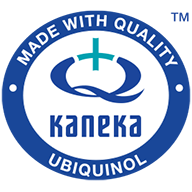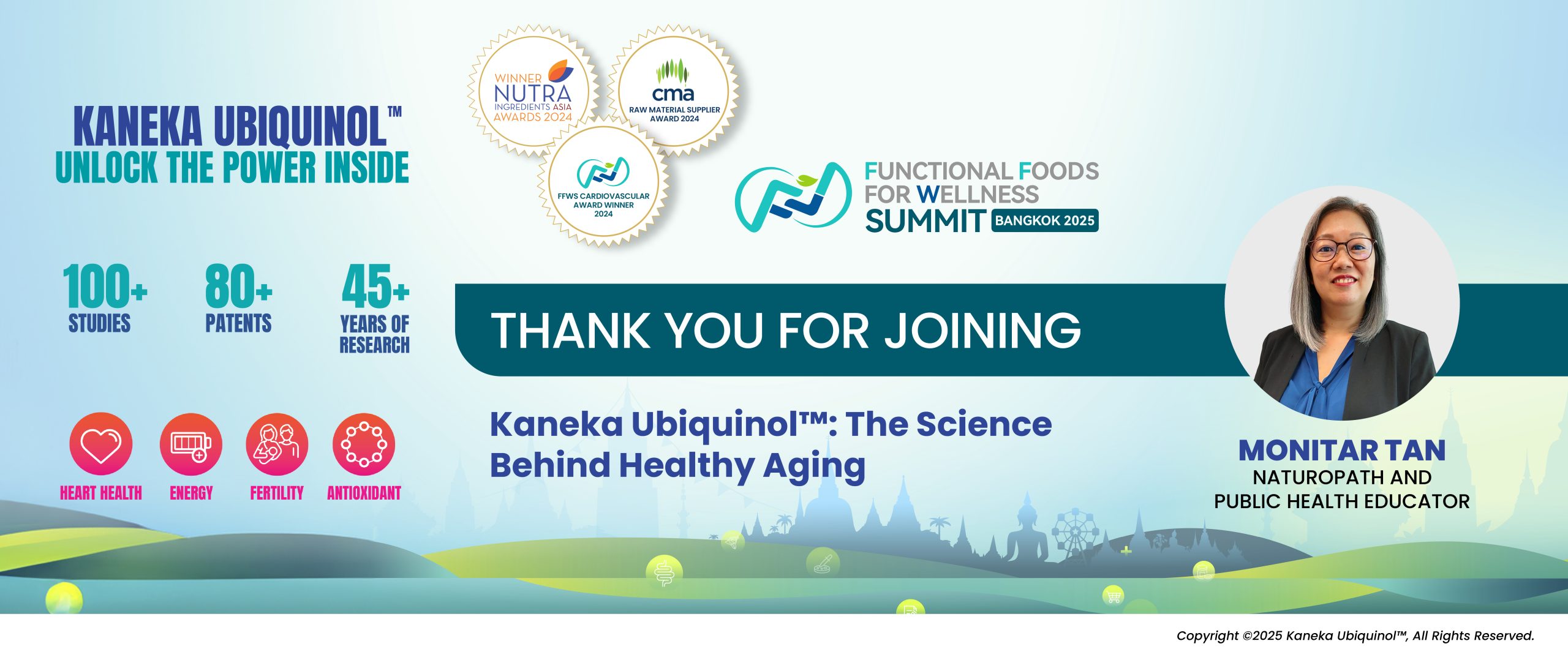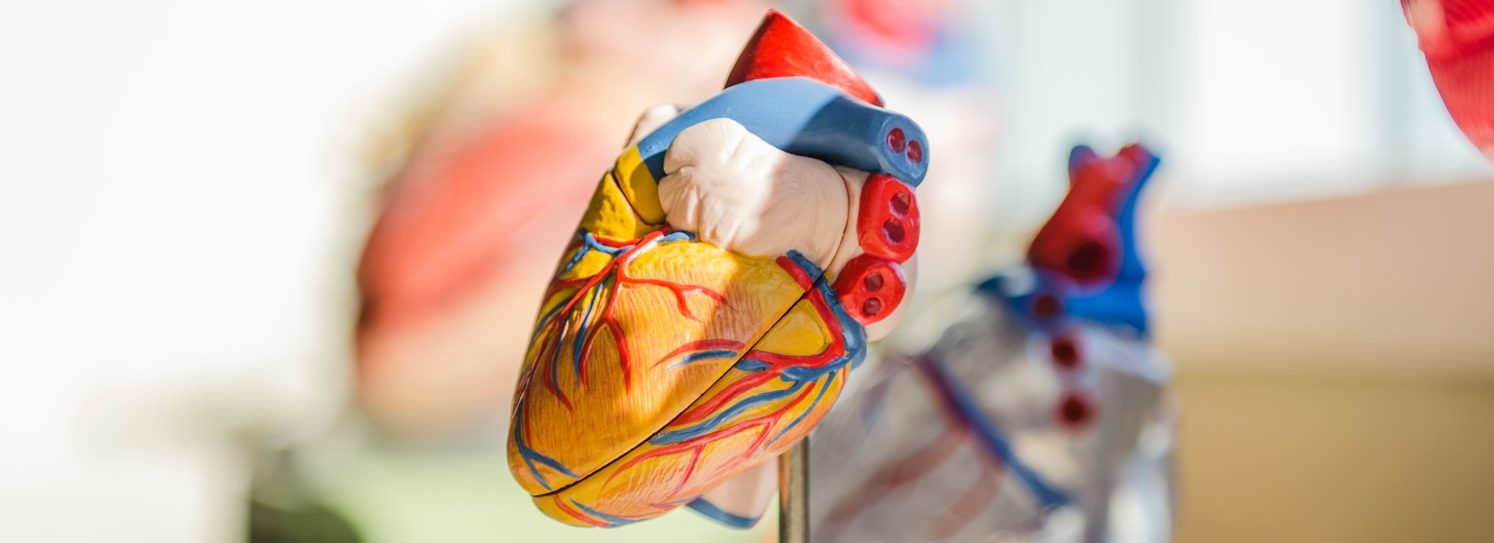
Ubiquinol, Heart Health and Cholesterol
Jul 2021Recent Article
Cardiovascular updates
Your heart sits at the centre of your cardiovascular system so supporting its health is vital. Studies have shown that poor heart health may affect the body’s ability to function effectively[1]. Being proactive in taking care of your heart is one of the key factors in maintaining a healthy living and overall good health.
Ubiquinol’s role in supporting heart health
You’ve probably heard about Coenzyme Q10 (or CoQ10), a naturally occurring antioxidant in your body, but you may not have heard of Ubiquinol, the active (more easily adsorbed) form of CoQ10, responsible for providing your cells with energy.
As an active form of CoQ10, Ubiquinol provides cholesterol support, assists the maintenance of healthy cholesterol levels, protects cells from oxidative stress and aids in the regeneration of antioxidants like vitamin C and E [2].
Due to its great and constant need for energy, the heart muscle is known to contain a large number of mitochondria, requiring significant amounts of cellular energy to function [3]. Ubiquinol promotes heart health by helping to provide the cellular energy to keep the heart pumping well. It is critical in the production of ATP, the body’s primary fuel. This fuel is used for three heart functions:
1. Contraction – to keep the heart pumping consistently
2. Relaxation – to allow the heart to rest between beats
3. Molecular Synthesis – to maintain the heart’s structure by building important cellular components
Without enough ATP in the “energy pool”, the heart’s function may not function as effectively.
As a lipid-soluble antioxidant that is located in the mitochondria, found naturally in our bodies and which starts to decline as we age from around the age of 30, Ubiquinol plays a very important role in quenching the free radicals that are produced in abundance in the mitochondrial membrane as a by-product of the catabolism of food for energy. In this way, it protects the membrane and surrounding environment from damage.
Ubiquinol has also been shown to assist in maintaining healthy levels of LDL cholesterol. If you have a predisposition to heart disease or are taking statin medication for high LDL cholesterol levels, then speak to your doctor about Ubiquinol supplementation.
[1] Gilvydis, R. (2019) Why Good Blood Circulation is Vital to Your Health, Northern Illinois Vein Clinic. Available at: https://niveinclinic.com/why-good-blood-circulation-is-vital-to-your-health/ (Accessed: 7 June 2021).
[2] Ernster, L., & Forsmark-Andrée, P. (1993). Ubiquinol: an endogenous antioxidant in aerobic organisms. The Clinical investigator, 71(8 Suppl), S60–S65. https://doi.org/10.1007/BF00226842 (Accessed: 7 June 2021).
[3] Hassinen I. (2007) Regulation of Mitochondrial Respiration in Heart Muscle. In: Schaffer S.W., Suleiman MS. (eds) Mitochondria. Advances in Biochemistry in Health and Disease, vol 2. Springer, New York, NY. https://doi.org/10.1007/978-0-387-69945-5_1 (Accessed: 26 June 2021).
You can share this by:
Keep up-to-date with Ubiquinol News
Ubiquinol Headlines
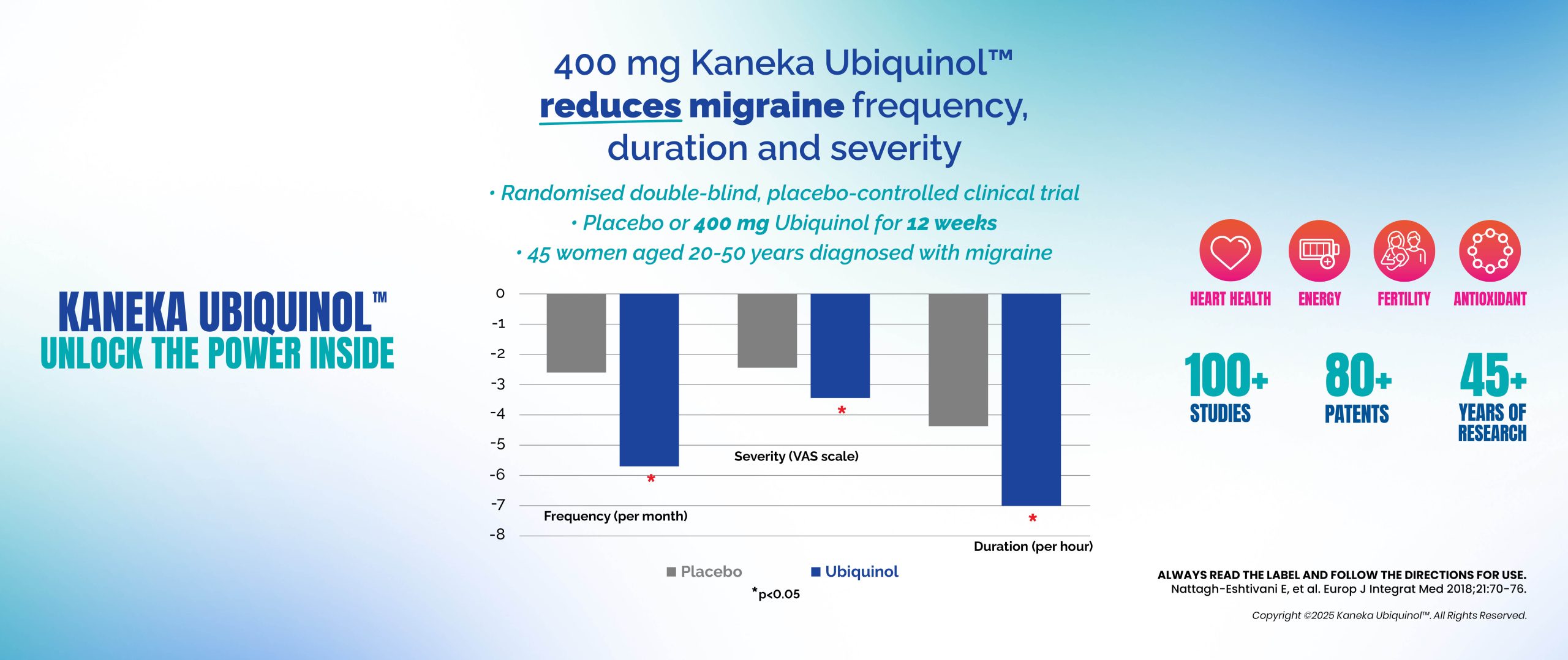
Ubiquinol: Supporting Migraine Relief Through Cellular Energy
Jan 2025Category: Antioxidants, complementary medicine, Energy, Fatigue, Health, Health Industry, healthy ageing, Kaneka, Mitochondrial health, Nutrition, Stress, Ubiquinol, Vitamins, wellnessRead More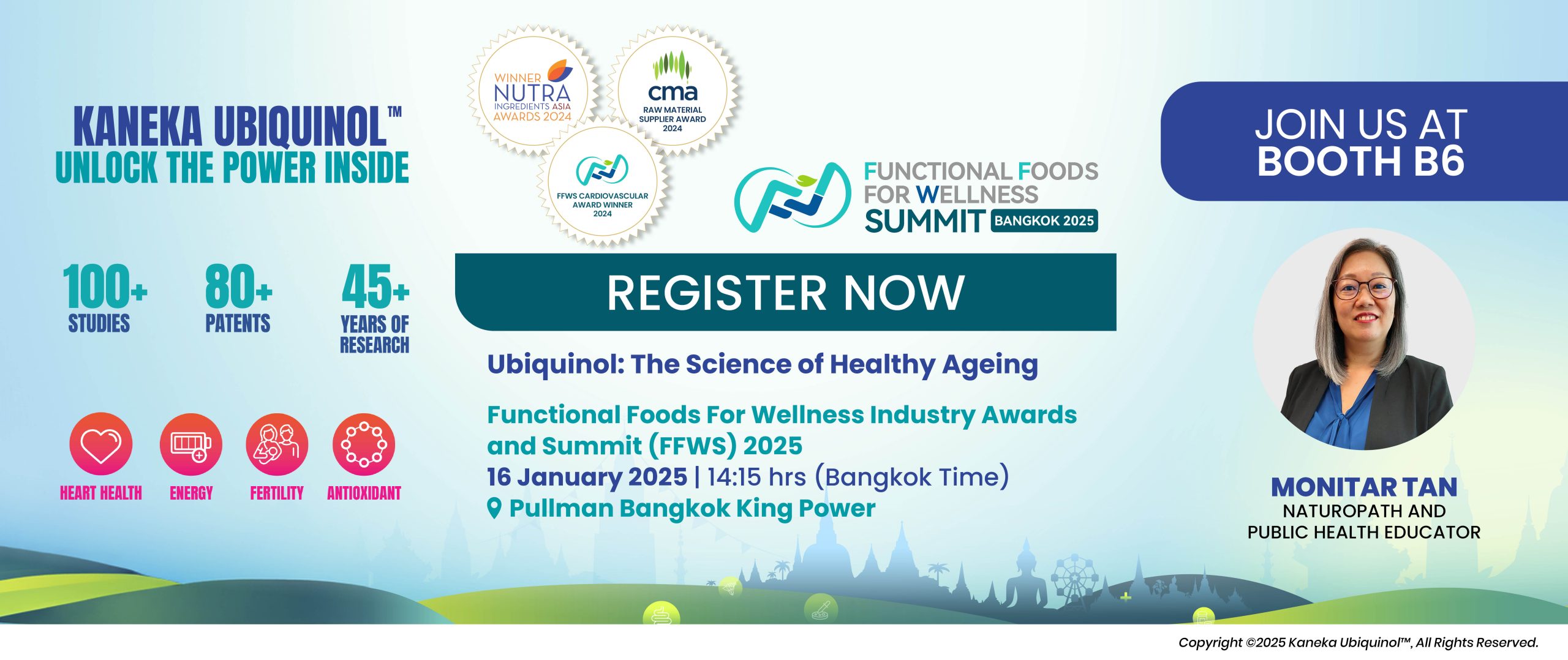
Kaneka Ubiquinol™ at Functional Foods for Wellness Industry Awards and Summit, #FFWS2025
Jan 2025Category: Ageing, Antioxidants, Awards, cardiovascular health, Conference, Conferences, Energy, Fatigue, FFWS2025, Health, Health Industry, healthy ageing, Kaneka, Menopause, Mitochondrial health, Nutrition, Ubiquinol, VitaminsRead More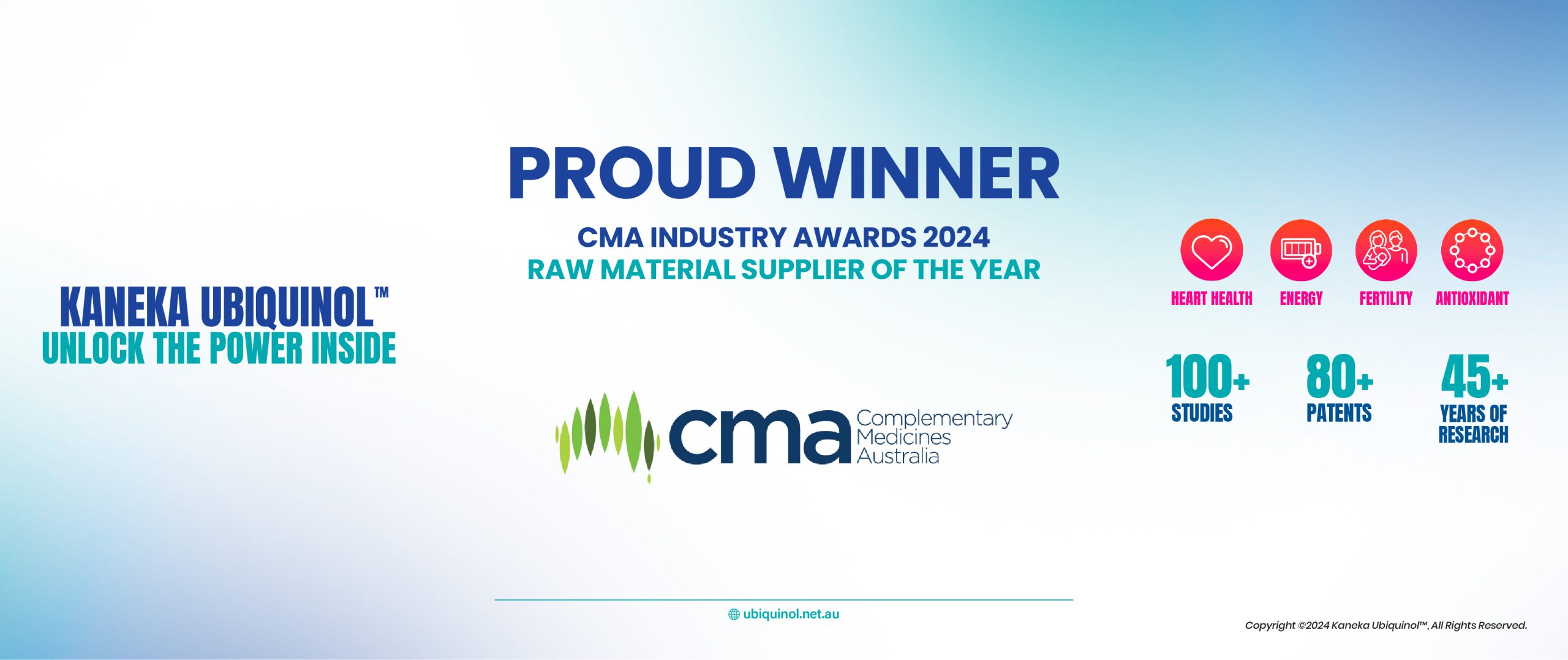
Kaneka Ubiquinol Wins Prestigious Complementary Medicines Raw Material Supplier of the Year Award 2024
Dec 2024Category: Ageing, Awards, cardiovascular health, complementary medicine, Conference, Conferences, Endurance, Energy, Fatigue, Fertility, Fitness, Health, Health Industry, healthy ageing, Heart, Immunity, In The News, Kaneka, Lungs, Memory, Mitochondrial health, Nutrition, Online, Stress, Ubiquinol, Vitamins, wellnessRead More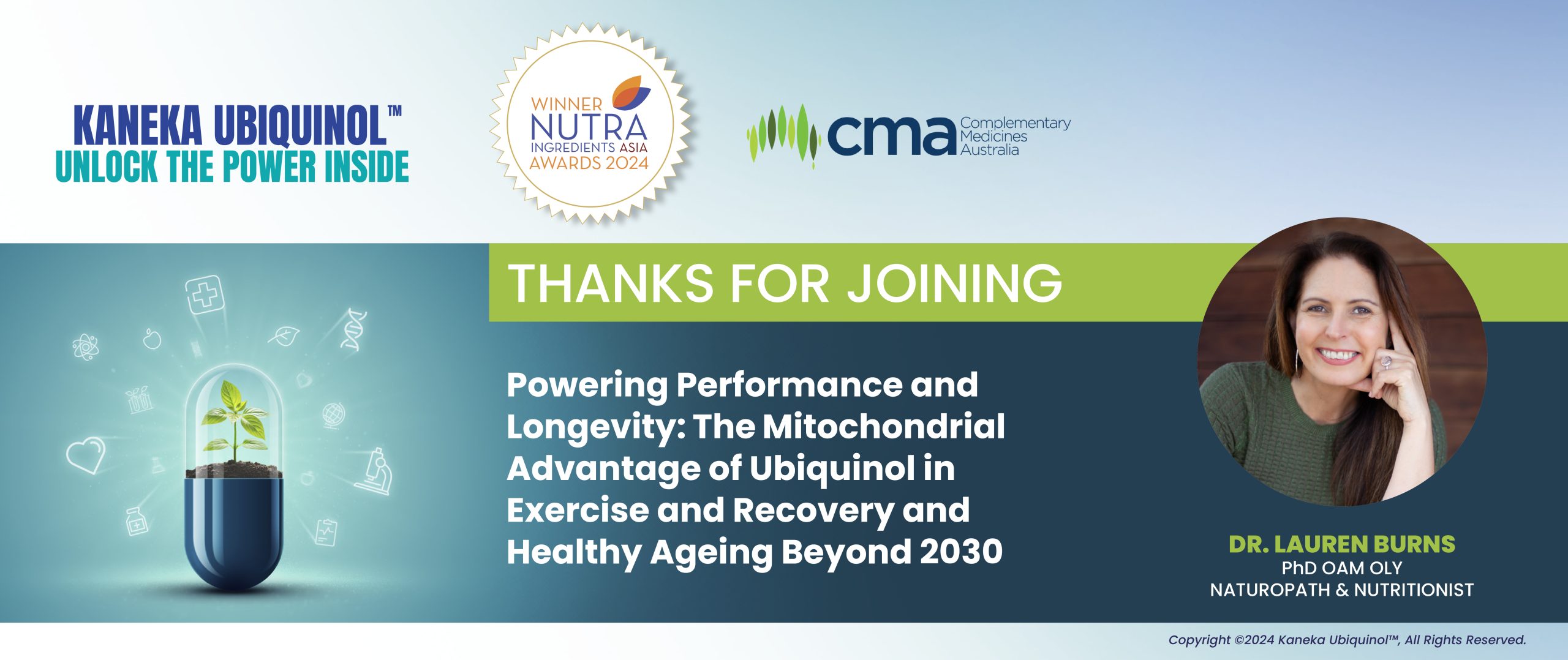
“Powering Performance and Longevity: Kaneka Ubiquinol™ at the CMA Annual Conference 2024”
Nov 2024Category: Ageing, Antioxidants, Awards, cardiovascular health, chronic fatigue syndrome, complementary medicine, Conference, Conferences, Endurance, Energy, Fatigue, Fertility, Fitness, Health, Health Industry, healthy ageing, Heart, In The News, Kaneka, Mitochondrial health, Online, Ubiquinol, VitaminsRead More
Natural Health Product Innovation Expo 2024
Nov 2024Category: Ageing, Antioxidants, cardiovascular health, Cholesterol, chronic fatigue syndrome, Conference, Conferences, Endurance, Energy, Fatigue, Fertility, Fitness, Health, Health Industry, healthy ageing, Heart, Kaneka, Menopause, Mitochondrial health, NHNZ, Nutrition, Stress, Ubiquinol, Vitamins, wellnessRead More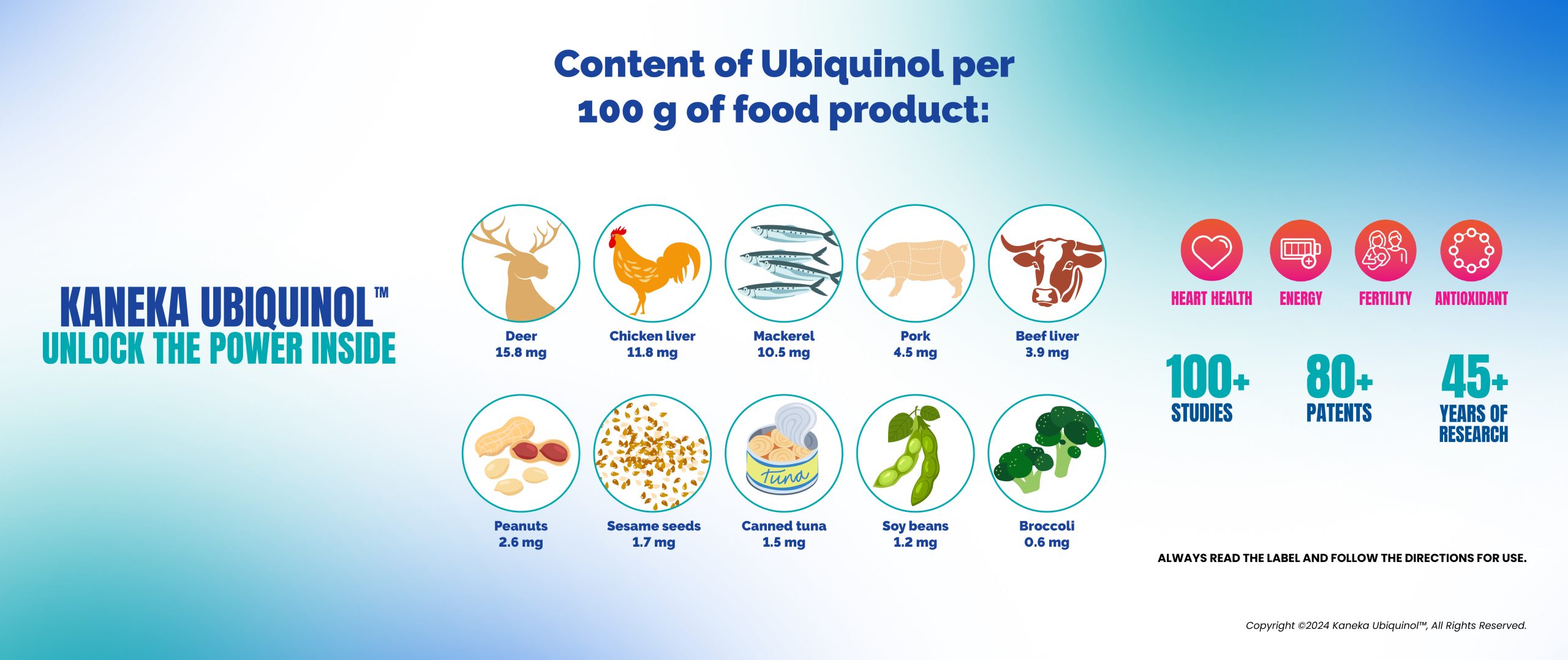
Ubiquinol: The Overlooked Nutrient for Vegans and Vegetarians
Oct 2024Category: Ageing, Antioxidants, Cholesterol, complementary medicine, Endurance, Energy, Fatigue, Fitness, Health, Health Industry, healthy ageing, Heart, Mitochondrial health, Nutrition, Stress, Ubiquinol, vitafoods, Vitamins, wellnessRead More
Investigating the Application of Ubiquinol in Mitochondrial Function
Oct 2024Category: Ageing, Antioxidants, cardiovascular health, Cholesterol, chronic fatigue syndrome, Endurance, Energy, Fatigue, Fertility, Fitness, Flu, Health, Health Industry, healthy ageing, Heart, Immunity, In The News, Kaneka, long covid, Lungs, Memory, Menopause, Mitochondrial health, myalgic encephalomyelitis, Nutrition, post pandemic, Stress, Ubiquinol, Vitamins, wellnessRead More
